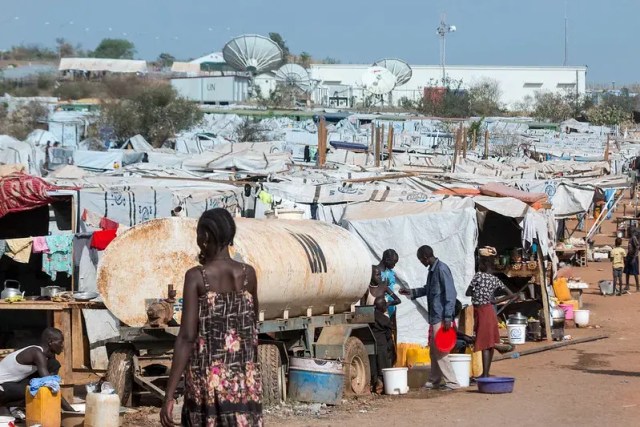U.N. warns supplies will run out by end of May as conflict near river halts food and nutrition deliveries to Upper Nile State.

Fighting along the banks of the Nile River in South Sudan has blocked life-saving humanitarian aid from reaching more than 60,000 malnourished children in the country’s northeast for nearly a month, two United Nations agencies warned on Thursday.
The World Food Programme (WFP) and UNICEF said they expect nutrition supplies for Upper Nile State — a region with some of the country’s highest malnutrition rates — to be exhausted by the end of May if deliveries do not resume.
“Children are already the first to suffer during emergencies,” said Mary-Ellen McGroarty, WFP’s representative in South Sudan, in a joint statement. “If we can’t get nutrition supplies through, we are likely to see escalating malnutrition in areas already at breaking point.”
The Nile serves as a vital transport route in South Sudan, where few paved roads and challenging terrain, particularly during the rainy season, make land-based delivery nearly impossible.
The U.N. agencies did not specify which faction’s fighting has blocked their aid barges, but government forces have been clashing with the ethnic Nuer militia known as the White Army in areas along the river since March. The violence has triggered a wider political crisis following the arrest of First Vice President Riek Machar, raising fears of a return to the brutal civil war that ended in 2018.
In mid-April, WFP and UNICEF were forced to recall barges carrying 1,000 metric tonnes of food and nutrition supplies bound for Upper Nile due to mounting insecurity. The agencies also decided against pre-positioning supplies at health centers and warehouses in contested areas, fearing they would become targets for looting.
“We have reluctantly taken the unprecedented step of holding back supplies for fear that they will not reach the children that so desperately need them, due to the ongoing fighting, looting and disruption of the river route,” said Obia Achieng, UNICEF’s representative in South Sudan.
As the end of May looms, aid agencies warn that without immediate access, the situation could rapidly worsen, deepening a humanitarian crisis in a country still struggling to recover from years of civil war.
Keep Independent Journalism Alive
In a world flooded with noise, independent journalism is more vital than ever. We work hard to bring you clear, accurate, and unbiased international news — free from corporate or political influence.If you believe in the power of honest reporting, please consider making a donation. Every contribution, big or small, helps us stay independent and keep the world informed.
Support us via PayPalYour support makes a difference.


